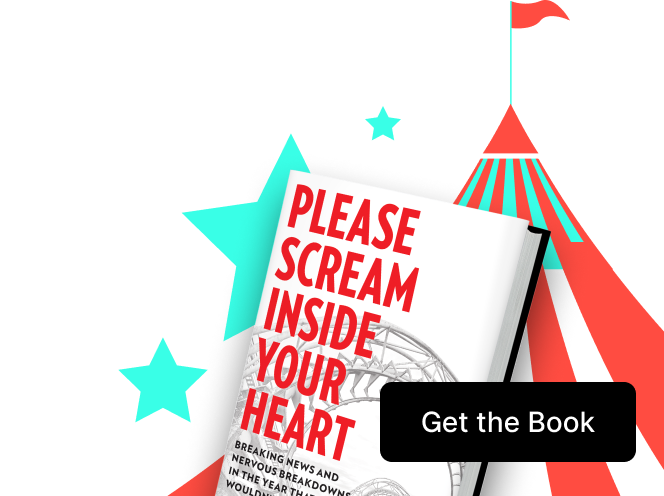The Internet Era's Unlikely Poster Child
San Francisco’s Herbst Theater was nearly packed as the beginning of the evening’s event approached. I looked at the rows of heads bowed down towards their iPhones and Blackberries. Then, up near the stage, I saw one guy staring down at a hardcover book. I thought to myself, freak.
Even at a book tour event, a guy reading a hardcover looked a little out of place. We were all in the theater to hear the much-heralded Jonathan Franzen talk about his career and latest novel. None of the handheld devices would have surprised Franzen. He has been worried and warning about these distractions for a long time. During his presentation, Franzen compared life in the era of the realtime web to standing in front of a wall of blinking flash bulbs. In this state, Franzen explained, it becomes increasingly difficult to pick out the really important or interesting stuff.
It’s hard to argue with that general premise. We are all now managing an ever-increasing stream of information bits that range from personal messages to global news. It’s harder to select the content worthy of our focus and it’s more challenging to concentrate once we make an attempt to dig in.
But here’s the irony. Jonathan Franzen’s rise as a literary megastar has taken place during the very time period when the realtime internet has exploded into our collective consciousness. We are living in a world surrounded by data and screens and we’re constantly drawn in by an internet twitch few of us imagined even a decade ago. Yet, somehow, works of fine literature like those written by Jonathan Franzen still manage to garner a meaningful slice of public mindshare.
Franzen’s novel Freedom could be the most lauded and hyped work of high literature in a generation. The novel is complex, requires concentration and is 559 pages longer than the content most of us are consuming these days. And yet, there it is at the top of the Amazon and NYT best seller lists.
Is anyone really having trouble picking the Franzen flash bulb out of the bunch?
Franzen describes this as the golden age for exhibitionists. But shouldn’t the desire to exhibit one’s life make perfect sense to an author who is very public about his position on the importance of his own work being read? Maybe Franzen isn’t all that much different from the rest of us exhibitionists. We’re all swimming in a bottomless sea of incoming data and on some level wondering if our voices will be heard.
I mean can a guy who has public battles with Oprah and who is on the cover of Time really knock me for wanting people to at least be aware of the really funny stuff my cat does?
Can data streams and viral cat videos coexist with fine literature? Every early adopter I know complains about having a harder time concentrating these days. But I don’t think their appreciation for losing themselves in literature has dissipated along with their attention spans. At least for now, people are finding ways to read.
Arthur Phillips — my friend, an incredibly well-reviewed writer of novels such as The Song is You, and yet another person who recently became a pretty active Twitter user — thinks we’ll be OK: “I’m reminded that my parents despaired of me reading books because I watched too much television. That worked itself out. I’m increasingly of the feeling that reading and books will be fine, as long as parents give a shit.”
I hope Arthur is right. Last time I checked, there were 668 folks waiting to check out Freedom from the San Francisco Public Library. We live in the age of the internet twitch and yet Franzen’s literature is celebrated, selling and in demand. That leaves us with a big question. Will our ability to create spaces to concentrate keep pace with the innovation of technologies that will further slam our ability to focus, or is Jonathan Franzen longform literature’s last hurrah?
That’s a question that can only really be answered during the coming of age of Generation Swipe, the kids who learn to swipe before they learn to wipe. There’s no doubt that their generation will have a different relationship with content than mine. Maybe those who read long, hardcover books really will seem like freaks to them. My gut tells me my kids will still be reading long works and that serious novels have a future place in our evolving digital world. But to maintain focus, their generation will have to block out a massive collection of igniting flash bulbs that will make today’s internet look like a single candle’s flicker in a distant window.
Franzen and my cat better get to work.
